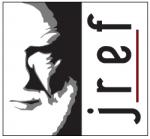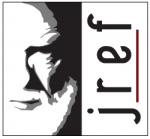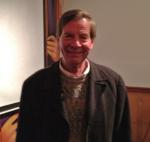Your Beliefs Are Malleable
As some of you may recall, I was recently asked to join the James Randi Educational Foundation's "Education Initiative,"  JREF Logowhose purpose is to promote teaching of critical thinking and skepticism.
JREF Logowhose purpose is to promote teaching of critical thinking and skepticism.
My second article, entitled "Your Beliefs are Malleable," was recently posted. Its topic is cognitive dissonance, and it focuses on how it can be applied to teaching students to evaluate their beliefs in a more rational way.
CLICK HERE to check it out.









